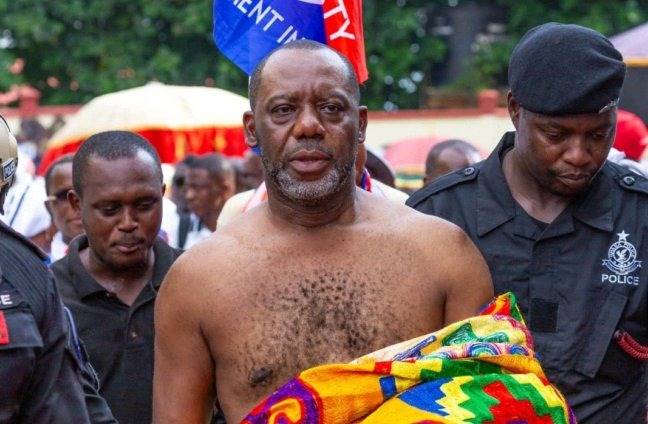The New Patriotic Party (NPP), which has Dr. Matthew Opoku Prempeh—commonly referred to as NAPO—as their running mate, is currently ramping up its campaign activities. They are actively engaging with voters through a series of rallies and speeches aimed at winning support ahead of the upcoming elections. However, the path to securing the hearts and minds of constituents has proven to be quite challenging for the party.
Recently, NAPO has come under fire for remarks he made that have offended many within the Muslim community across Ghana. His ill-timed comments have sparked significant backlash, leading to widespread criticism and outrage. This controversy has placed the NPP in a precarious position as they work to mend relationships and reassure the offended community. The ramifications of this incident on the party’s electoral prospects are currently unclear, adding to the uncertainty surrounding their campaign strategy.
Specifically, NAPO made a controversial statement suggesting that for Muslims, voting for the National Democratic Congress (NDC) amounts to an act that is “haram.†In Islamic terminology, “haram†denotes actions that are forbidden or deemed sinful according to Islamic law. This specific remark has ignited a heated debate and raised critical questions regarding the intersection of religion and politics in the country.
The implications of such statements are profound, as they underscore the complexities involved in blending democratic principles with religious doctrines. Democracy operates on the foundation of individual choice, plurality, and the right to dissent, while Islamic law presents a distinct framework for governance that often emphasizes communal values and moral imperatives. NAPO's comments have not only drawn ire but also highlighted the ongoing tensions between these two systems of thought.
As the NPP grapples with the fallout from this situation, they face the challenge of not only addressing the concerns of the Muslim community but also attempting to clarify their stance on the relationship between faith and political affiliation. The party's leadership may need to engage in dialogue with community leaders and members to demonstrate their commitment to inclusivity and respect for all religious beliefs.
In the broader context, this incident reflects the delicate balance that political parties must maintain when addressing issues that intersect with deeply held beliefs and values. The need for sensitivity in political discourse is paramount, especially in a diverse society where multiple religions coexist.
Moving forward, how the NPP navigates this controversy will be crucial in determining their electoral success. The party's ability to rebuild trust and convey a message of unity will be tested in the coming weeks as they continue their campaign. It remains to be seen whether NAPO and the NPP can effectively mitigate the damage caused by this situation and foster a sense of solidarity among all constituents, regardless of their religious affiliations.
In conclusion, the road ahead for the NPP is fraught with challenges, but it also presents an opportunity for growth and understanding. By addressing the concerns raised by NAPO's contentious remarks and engaging thoughtfully with the Muslim community, the party has the potential to emerge stronger and more united, ready to face the electorate with a renewed commitment to inclusivity and respect for all.




No comments yet
Be the first to share your thoughts!